
Phase 1 data may warrant further investigation of lunresertib in high-risk gastrointestinal tumors with CCNE1 amplifications or FBXW7 mutations.

Your AI-Trained Oncology Knowledge Connection!


Phase 1 data may warrant further investigation of lunresertib in high-risk gastrointestinal tumors with CCNE1 amplifications or FBXW7 mutations.

Treatment with zanubrutinib (Brukinsa) was found to have cost savings and quality-adjusted life year benefits compared with acalabrutinib (Calquence) in patients with B-cell malignancies.

Data from the PERSEUS trial also show that responses deepened over time in both arms among patients with transplant-eligible multiple myeloma.

Secondary end points such as overall survival also appear to favor T-DXd among this breast cancer population in the phase 3 DESTINY-Breast06 trial.

Osimertinib may become a new standard of care for those with EGFR-mutant NSCLC, according to Suresh S. Ramalingam, MD, FACP, FASCO.
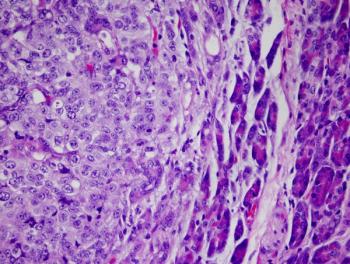
Subgroup findings suggest a PFS benefit with the addition of encorafenib/binimetinib in patients with liver metastases.

Rates of HPV-related cancers may be decreased in patients under 40 have received an HPV vaccine.

A phase 1b evaluating NXP800 in platinum-resistant ARID1A-mutated ovarian cancer is open for enrollment in the United Kingdom and the United States.

Study finds social determinants of health linked to variations in cervical cancer rates.
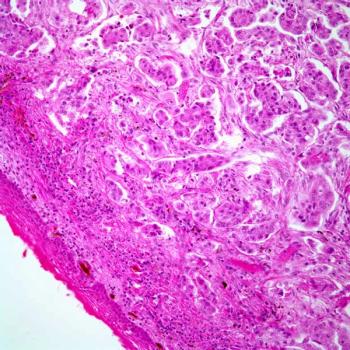
Data from the INTERLACE trial support induction chemotherapy prior to chemoradiation as a potential standard in locally advanced cervical cancer.

The phase 2 TROPiCS-03 trial helped elicit responses and disease control in patients with extensive-stage small cell lung cancer who received second-line sacituzumab govitecan.

Findings from the phase 2 GMMG-CONCEPT trial suggest that elevated lactate dehydrogenase levels correlated with worse survival in patients with newly diagnosed, high-risk multiple myeloma.

Adding pembrolizumab to chemotherapy shows little increase in adverse effects among patients with metastatic nonsquamous non–small cell lung cancer in the phase 3 KEYNOTE-789 trial.

Ciltacabtagene autoleucel may become a new standard of care for patients with lenalidomide-refractory myeloma after first relapse, according to an expert from the Medical College of Wisconsin in Milwaukee.

For the pooled analysis, investigators evaluated the efficacy and safety of bispecific antibody elranatamab in patients with relapsed/refractory multiple myeloma enrolled in 1 of the 4 MagnetisMM trials who received at least 1 proteasome inhibitor, 1 immunomodulatory drug, 1 anti-CD38 monoclonal antibody, and 1 BCMA-directed ADC and/or CAR T-cell therapy.

ADAURA included patients at least 18 years of age with completely resected stage IB to IIIA nonsquamous NSCLC who harbored EGFR exon 19 deletions or exon 21 L858R mutations.

Pembrolizumab plus chemotherapy with or without bevacizumab yields a survival benefit in PD-L1 positive patients with cervical cancer in the phase 3 KEYNOTE-826 trial.

Toripalimab plus bevacizumab and platinum-based chemotherapy produces a “promising” response rate in those with metastatic cervical cancer, according to an expert from Peking Union Medical College.

Treatment with talazoparib and enzalutamide appears to yield a statistically significant and clinically meaningful radiographic progression-free survival benefit compared with placebo/enzalutamide in frontline metastatic castration-resistant prostate cancer regardless of homologous recombination repair status.
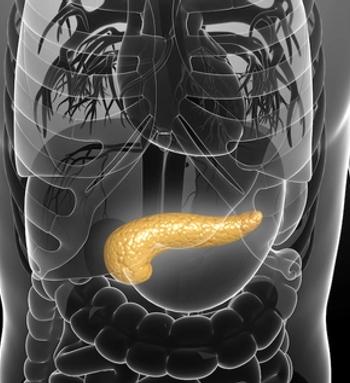
A combination of liposomal irinotecan plus 5-fluorouracil, leucovorin, and oxaliplatin in the frontline yields a statistically significant survival benefit compared with nab-paclitaxel and gemcitabine in a population diagnosed with metastatic pancreatic ductal adenocarcinoma.

Findings from the phase 1b/2 KRYSTAL-1 trial showed encouraging responses with adagrasib in patients with advanced KRAS G12C-mutant colorectal cancer.

The final readout of the phase 2 TITAN-RCC trial highlighted an improvement in responses following an individualized regimen of nivolumab and ipilimumab boost after single-agent nivolumab in patients with advanced renal cell carcinoma.
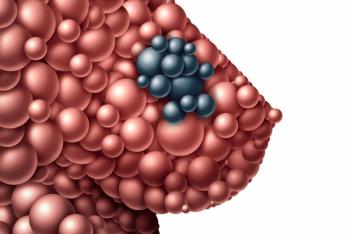
The nonsteroidal selective estrogen receptor modulator lasofoxifene resulted in better clinical benefit vs fulvestrant in patients with estrogen receptor (ER)–positive, HER2-negative, ESR1-mutant metastatic breast cancer.

Results from the phase 2 SYNERGY trial suggest little or no benefit of adding oleclumab to durvalumab and chemotherapy for advanced frontline triple-negative breast cancer.

Results from the phase 3 RATIONALE-303 trial presented at 2022 WCLC showed an overall survival benefit when patients with non–small cell lung cancer were treated with second- or third-line tislelizumab compared with docetaxel.

TROPION-Lung02 trial provides evidence of datopotamab deruxtecan and pembrolizumab efficacy in patients with advanced/metastatic non–small cell lung cancer and no actionable genomic alterations.

The novel KRAS G12C inhibitor GDC-6036 induced a high response rate in patients with previously treated KRAS G12C mutation–positive non–small cell lung cancer.

Treatment strategies might be better tailored through the use of next-generation sequencing to detect NRG1 fusions.
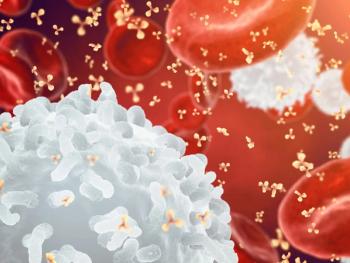
Follow-up results of the phase 3 ASPEN trial comparing zanubrutinib with ibrutinib in patients with Waldenström macroglobulinemia were presented at 2022 ASCO.

Results from the phase 2 CRESTONE trial showed positive overall response rates in patients with solid tumors harboring NRG1 fusions treated with seribantumab monotherapy.